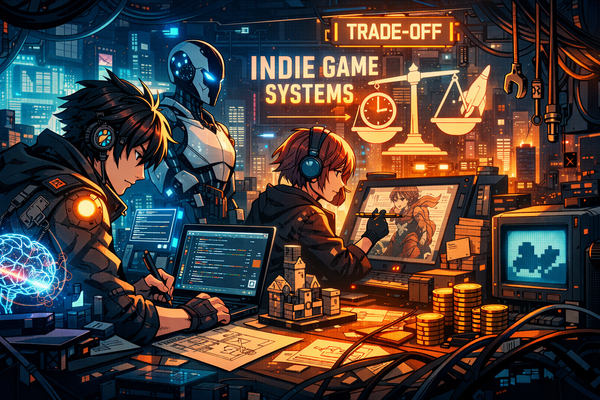Indie innovators: How small developers are shaping the future of VR and AR
Independent developers are at the forefront of virtual reality (VR) and augmented reality (AR) innovation, leveraging limited resources to create groundbreaking experiences. Their agility and creativity have led to significant advancements in these fields, influencing the broader industry.
The indie advantage in VR and AR development
Indie developers often operate with smaller teams, allowing for rapid experimentation and iteration. This flexibility enables them to explore unconventional ideas and take creative risks that larger studios might avoid. Their contributions have been pivotal in advancing VR and AR technologies (Draw and Code).
Notable indie contributions
- Cooperative Innovations: Founded in 2016, this studio focuses on establishing best practices in VR/AR development through extensive research and development, creating industry-leading tools and technology, and sharing knowledge. Their work emphasizes the importance of social interaction in virtual spaces (AIXR).
- Normal VR: Established by Max Weisel in 2016, Normal VR is a research-led startup dedicated to creating tools and software for VR applications. They have developed innovative solutions like "Cutie Keys," an open-source VR typing interface, and "Normcore," a multiplayer plugin for Unity that simplifies the creation of social VR experiences (Wikipedia)
Impact on the industry
The innovations introduced by indie developers have significantly influenced the VR and AR landscape:
- Pioneering new genres: Indie studios have been instrumental in exploring and establishing new genres within VR and AR, pushing the boundaries of what these technologies can achieve (SDL Corporation).
- Driving technological advancements: Through their experimental approach, indie developers have contributed to the development of new tools and techniques that enhance the capabilities of VR and AR platforms.
- Influencing Major Players: The success and innovation demonstrated by indie developers have inspired larger companies to adopt similar approaches, leading to a more dynamic and diverse industry (Fast Company).
Challenges faced by indie developers
Despite their successes, indie developers encounter several challenges:
- Limited funding: Securing financial resources for VR and AR projects can be difficult, impacting the scale and reach of their innovations.
- Market visibility: Competing with established studios for attention in a crowded market poses significant hurdles.
- Access to advanced technology: High costs associated with cutting-edge VR and AR equipment can limit development opportunities.
Indie developers play a crucial role in shaping the future of VR and AR. Their innovative approaches and willingness to explore uncharted territories continue to drive the industry forward, offering fresh perspectives and experiences that enrich the virtual landscape.




